Voters Still Question Fairness of International Courts
While a majority of voters still supports the use of international courts for certain major crimes, they put far more trust in U.S. courts to reach impartial verdicts.

While a majority of voters still supports the use of international courts for certain major crimes, they put far more trust in U.S. courts to reach impartial verdicts.

It’s moment of truth time for the #Never Trump crowd: Do you want four years of Hillary Clinton in the White House or a Republican president you strongly disagree with?

A bipartisan bill now before Congress would allow families victimized by the September 11, 2001 terror attacks to sue the Saudi Arabian government if it can be shown to have ties to the killers, but opponents including the Obama White House worry that the legislation will have negative foreign policy repercussions for the United States. Most Americans support the families right to sue.

Americans doubt they’ve been told all the facts about the September 11, 2001 terrorist attacks on the United States and strongly believe the government should come clean.

With increasing concern about the threat of terrorism here and abroad, voters are placing more importance on the war in Afghanistan, now in its 14th year, although less than half favor keeping U.S. troops there another year.

The surprising level of support for Donald Trump and Bernie Sanders suggests voters in the two major parties are getting more extreme in their thinking than their respective party leaders. A sizable number of voters agree, though Democrats are more likely than Republicans to think their party’s voters and leaders are in sync.

The presidential contest that no one ever expected and many claim not to want is back on track and coming to your ballot box this fall.
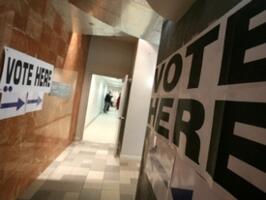
Voters remain more conservative on money issues than on those that pertain to social matters, but attitudes really haven’t changed much in recent years. Democrats and Republicans continue to disagree.

For all of the talk about Donald Trump and Bernie Sanders potentially running as third-party candidates in this year’s presidential election, most voters aren’t betting on a third-party candidate taking the White House anytime soon.
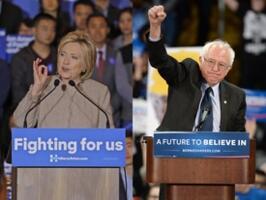
Vermont Senator Bernie Sanders has been on a hot streak lately in the Democratic primary race, but Democratic voters still put more trust in his rival when it comes to key issues.

Law-abiding Americans are buying guns at a record pace, and most tell us it’s for self-defense. Democrats, however, are far more likely than others to believe it is too easy to buy a gun these days.

Mississippi and North Carolina are the latest states to adopt laws that allow a private business not to serve someone if it violates the business owner's religious beliefs, but critics contend that gay, lesbian and transgender customers will suffer. Most voters nationwide agree and still don’t want their state to adopt such laws.
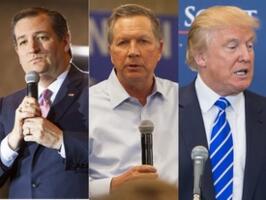
Most Republicans think Texas Senator Ted Cruz and Ohio Governor John Kasich have what it takes to be president, but GOP voters are evenly divided over whether the same is true of Donald Trump. Among all voters, however, only Kasich fills the bill.

Hillary Clinton and Bernie Sanders entered a war of words recently over whether the other is qualified for the White House. Democrats see Clinton as more qualified, but voters in general are more critical of both candidates’ credentials.
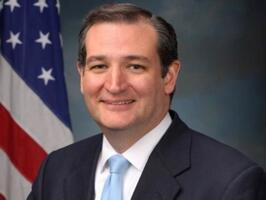
Ted Cruz may have picked up more delegates than Donald Trump in recent days, but Republican voters don’t rate his chances for their party’s presidential nomination nearly as highly yet.
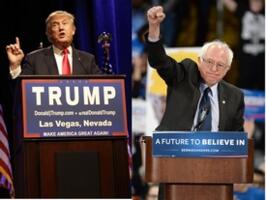
Members of the establishment in both major political parties worry that supporters of Donald Trump and Bernie Sanders will not align with the party’s eventual nominee if their guy isn't chosen, but that appears to be a much more serious problem for Republicans than for Democrats.

Voters are more critical of the presidential primary process than they have been in the past.
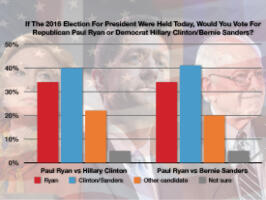
Some top Republicans see House Speaker Paul Ryan as the party’s savior if they can just make him the GOP presidential nominee. But Ryan loses to both major Democratic candidates in head-to-head matchups, with roughly a quarter of Republicans looking somewhere else.

Few voters think the government will bring illegal immigration to an end regardless of who wins the White House in November. Most believe amnesty for illegal immigrants is more likely to happen instead.

Presidential front-runners Donald Trump and Hillary Clinton have both had to do damage control recently following comments they made about abortion. Voters place more importance than ever on the issue, and most remain pro-choice.